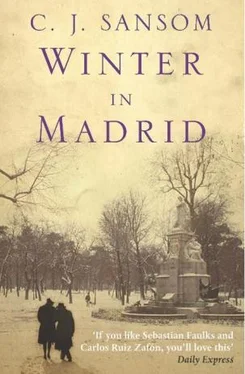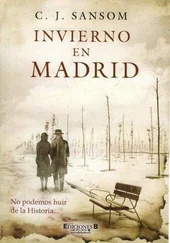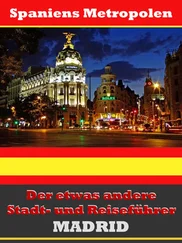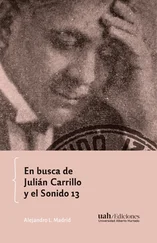At the airport she was met by a representative from the London Chamber of Commerce, a tall urbane man with a Guards tie who introduced himself as Gore-Brown. There were half a dozen businessmen with him. ‘Gosh,’ she said. ‘I didn’t know there would be so many in your group. There are only four Argentines. You’ll have to take turns, I’m afraid.’
‘I’m told one or two of them speak English. A lot of Argentines do, I believe.’
‘Oh well, we’ll see how we get on.’ Barbara adopted the jolly, confident-spinster manner she used with men like these. She hoped she would be all right with the difficult, lisping Argentine accent.
‘The plane’s just about to land, I believe,’ Gore-Brown said. ‘We could go up to the departure lounge and watch.’
‘Oh, that’d be good,’ one of the businessmen said. ‘I’ve never seen a plane land before.’
‘You can tell you weren’t in the RAF,’ a red-faced man with a handlebar moustache said.
‘Five years on the battleships, old boy. Shot down a few, but I’ve never seen one land.’
Laughing, the group mounted the stairs to the observation deck. A large window gave on to the tarmac. A couple of planes stood there, passengers disembarking.
‘Here she comes,’ the navy man said, and Barbara looked as a twinengined plane, surprisingly small, slid on to the runway and taxied slowly towards them. She took the papers from her briefcase. Gore-Brown leaned over her. ‘Which one’s the Fray Bentos man?’ he asked.
‘Barrancas.’
‘Jolly good. Make sure you put me next to him. There could be some good business in this for me. I’m in distribution. You can make a lot off the meat ration.’ He winked.
The plane had halted. A couple of overalled men slid steps on wheels up to the door. It opened and a little group of men descended the steps. They all had sunburned faces and wore hats and heavy overcoats; England must seem very cold, Barbara thought.
She squinted, adjusting her glasses. There was something familiar about the last man in the group. He hung back a little, looking round as though fascinated by his surroundings. She stepped to the glass and peered out.
Gore-Brown joined her. ‘That last man, that’s Barrancas. They sent me a photo. He’s one of the English speakers, I think.’
But his name wasn’t really Barrancas, Barbara knew. She knew that stocky form, bulkier now and with a stoop, that hard heavy-featured face, the Clark Gable moustache. She watched as Sandy Forsyth walked across the tarmac towards them, smiling like an eager curious schoolboy as he lifted his face to the sunny English afternoon.
Nearly three quarters of a century after its end, the Spanish Civil War remains controversial.
In the early years of the twentieth century, Spain’s oligarchic monarchist regime faced increasing resistance from middle-class Republican reformers, Catalan and Basque regionalists and above all from the impoverished working classes, rural and urban. A cycle of resistance and oppression fed a class struggle and polarization unique in Europe outside Russia.
In 1931 King Alfonso XIII abdicated and the Second Republic was proclaimed. A succession of unsuccessful governments, first liberal-socialist and then conservative, followed until in 1936 a radical left-wing coalition was elected to power. Working people began taking matters into their own hands, seizing control of estates and local institutions.
Whether the Popular Front government could have succeeded will never be known, for in 1936 the long-feared military rising, supported by conservative forces and with major financial support from Juan March, took place. The initial coup failed, however: many officers remained loyal to the elected government and in the largest cities the rising was defeated. The insurgents were left in control of only a little over a third of mainland Spain, and none of its industrial regions.
It is possible that without foreign intervention the rising might have been entirely defeated, but Hitler and Mussolini immediately sent planes to General Franco, enabling him to airlift crack troops from Spain’s Moroccan colony to the mainland and begin his march on Madrid. Meanwhile the Conservative-dominated British government pressured France into denying aid to the Republic and closing the border. As a result the Republic was forced to turn to the only power willing to help them, the Soviet Union. The Republican zone became dependent on Stalin and his ‘advisers’, who exported his apparatus of terror as well as weapons. There is still a myth in Spain, fostered by the Franco regime, that the army rose to forestall a communist coup, but the Spanish Communist Party before 1936 was tiny and the tradition among Republicans, Socialists and Anarchists was strongly anti-authoritarian. The Communists’ rise to power was a direct consequence of Britain’s pressure on France to stay clear of involvement in the conflict.
The bloody civil war that followed lasted for three years and ravaged Spain. Perhaps 250,000 died in combat and another 200,000 in the campaign of terror waged by both sides, many of them apolitical people with ‘suspect loyalties’ who happened to end up on the wrong side of the lines.
When the war ended with Franco’s victory in April 1939, there was no reconciliation, only continued executions and disappearances as Franco sought to ‘cleanse’ Spain. The 1940s, for most Spaniards, were scarcely less of a nightmare than the Civil War years as the effects of drought were worsened by the ruin of much of the infrastructure in the war, Franco’s fascist economic policy of self-sufficiency, and the chaotic, corrupt distribution system. Franco himself fantasized about solutions such as giant gold reserves and manufacturing oil from grass.
The Franco regime itself was divided from the start between the Fascists of the Falange, whose armed bands Franco had co-opted during the Civil War and who became Spain’s only political party, and the Monarchists, traditional Spanish conservatives. The Monarchists were often pro-English and anti-German, but the England they admired was that of the aristocratic country house; they despised the Falangists as ‘common’ and had, if anything, even less sympathy with the sufferings of ordinary Spaniards than the Falange. In the Civil War they were no less violent. Franco himself stood somewhere in the middle; a skilful political tactician, his ability to balance the factions that made up his regime helped keep him in power for nearly forty years. After the defeat of Hitler, however, the Falange were always a junior partner in his coalition.
In 1939–40 the main question before Franco was whether to enter the war on Hitler’s side, as the Falange wanted. Franco himself had dreams of carving out an expanded Spanish African empire from the colonies of defeated France, but the Monarchists wanted to stay neutral, regarding entry into the war as a risky venture as well as one that would consolidate Falange power. In the end, as usual, Franco’s position was pragmatic. The son of a naval officer, he knew the power of the British navy, which was blockading Spain and could turn off supplies easily. Therefore he would only join the war if and when Britain was almost defeated. When this seemed to have happened in June 1940 he made overtures to Hitler, but the Führer’s reply was cautious. By autumn 1940, when Hitler wanted Franco in mainly so that Gibraltar could be taken, the Battle of Britain had ended in German defeat and Franco realized that Britain was far from finished.
The meeting between Hitler and Franco on the French–Spanish border in October 1940 remains a focus for argument. Franco’s apologists contend that his skilful diplomacy kept Spain neutral; his opponents argue he would have entered the war if the terms were right. I think the latter view is correct; but by the autumn of 1940, the amount of German aid Franco would have needed to prevent a British blockade driving Spain into starvation and perhaps renewed revolution was impossible for Hitler to provide. Franco’s persistent demands resulted in the Führer leaving the Hendaye meeting in disgust. Thereafter negotiations between Franco and the Axis continued but any real prospect of Spain’s entering the war receded, thanks to the Royal Navy’s continued control of the seas.
Читать дальше












